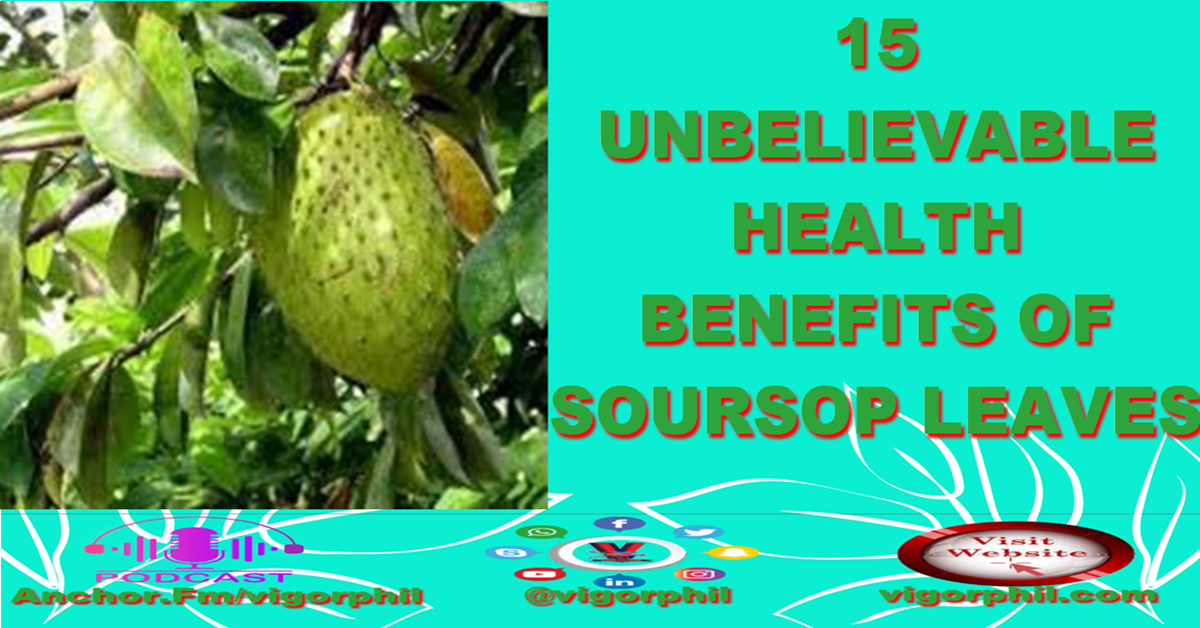Herbal remedies have been used for centuries to promote wellness and treat a variety of ailments. These natural remedies are derived from plant extracts and have gained popularity in recent years as an alternative to pharmaceutical drugs. Herbal remedies are often perceived as being gentler on the body and causing fewer side effects than prescription drugs. However, it is important to note that herbal remedies are not without their own risks and potential side effects.
This article will explore the science behind herbal remedies, the most common herbal remedies and their uses, how to use them safely and effectively, as well as the benefits and potential risks associated with herbal remedies. The goal is to provide readers with a comprehensive understanding of the power of herbal remedies and how they can be integrated into a wellness routine. It is important to emphasize that individuals should always consult with a healthcare professional before using any herbal remedies, especially if they are taking prescription medications or have any underlying medical conditions.
The Science of Herbal Remedies
Active Ingredients in Herbal Remedies
Herbal remedies contain various active ingredients that provide therapeutic effects. These ingredients include alkaloids, flavonoids, terpenoids, phenolic acids, and essential oils. The composition of these active ingredients varies among different plant species and determines the specific therapeutic effects of the herbal remedy.
Mechanisms of Action of Herbal Remedies
The mechanisms of action of herbal remedies vary depending on their active ingredients. Many herbal remedies exert their effects by interacting with specific receptors in the body, leading to changes in cellular processes. For example, the active ingredient in chamomile, apigenin, binds to GABA receptors in the brain, producing a sedative effect. Other herbal remedies may work by inhibiting specific enzymes or blocking certain pathways in the body.
Evidence-Based Research on Herbal Remedies
Numerous studies have investigated the efficacy and safety of herbal remedies. While some studies have shown promising results, others have reported conflicting findings. One of the challenges in conducting research on herbal remedies is the lack of standardization in terms of the composition and quality of the herbal products used in the studies. Additionally, the placebo effect may also contribute to the perceived therapeutic effects of herbal remedies. Despite these limitations, several herbal remedies have been found to be effective in treating various conditions, such as echinacea for the common cold, ginger for nausea, and valerian root for insomnia.
Common Herbal Remedies and Their Uses
Echinacea
Echinacea is a popular herbal remedy that has been used to treat cold and flu symptoms. It is believed to stimulate the immune system, increasing the production of white blood cells that fight infections. Echinacea may also have anti-inflammatory effects and is used topically to treat skin conditions such as eczema.
Ginger
Ginger has been used for centuries to treat nausea and vomiting, including nausea related to pregnancy and chemotherapy. The active compounds in ginger, gingerols and shogaols, are thought to work by blocking serotonin receptors in the gastrointestinal tract and reducing inflammation.
Turmeric
Turmeric is a spice commonly used in Indian and Middle Eastern cuisine. It contains the active ingredient curcumin, which has potent anti-inflammatory properties. Turmeric has been used to treat a variety of conditions, including arthritis, digestive issues, and even depression.
Garlic
Garlic is often used to flavor food but has medicinal properties. Garlic contains sulfur compounds that have been shown to have antibacterial, antiviral, and antifungal properties. Garlic has been used to treat high blood pressure and high cholesterol, and to prevent infections.
Chamomile
Chamomile is a popular herbal remedy for its calming and sedative effects. Chamomile contains apigenin, which has been shown to bind to GABA receptors in the brain, reducing anxiety and promoting relaxation. Chamomile has also been used to treat digestive issues, such as indigestion and irritable bowel syndrome.
Milk Thistle
Milk thistle is a herb that has been traditionally used to treat liver and gallbladder disorders. The active ingredient in milk thistle, silymarin, has antioxidant and anti-inflammatory properties that may protect liver cells from damage caused by toxins and inflammation.
Valerian Root
Valerian root is a natural sedative that has been used to treat insomnia and anxiety. The active compounds in valerian root, valerenic acid and valeranone, are believed to increase levels of GABA in the brain, promoting relaxation and reducing anxiety. Valerian root may also improve sleep quality and duration.
How to Use Herbal Remedies
Precautions
While herbal remedies are generally considered safe, they can interact with prescription medications or exacerbate certain medical conditions. It is important to consult with a healthcare professional before using herbal remedies, especially if you are pregnant, breastfeeding, or have any underlying medical conditions.
Dosage and Administration
The appropriate dosage and administration of herbal remedies vary depending on the specific herb and intended use. It is important to follow the instructions provided on the product label or as directed by a healthcare professional. Taking too much of an herbal remedy can be harmful and may cause adverse effects.
Preparing Herbal Remedies
Herbal remedies can be prepared in a variety of forms, including teas, tinctures, capsules, and creams. Teas are made by steeping the herb in hot water, while tinctures are made by soaking the herb in alcohol or glycerin. Capsules are available in pre-measured doses, and creams can be applied topically. It is important to follow the instructions for preparing and using the herbal remedy as directed.
Combining Herbal Remedies
Combining herbal remedies can be beneficial, but it is important to ensure that the herbs do not interact with each other or any prescription medications you may be taking. Some herbal remedies may enhance the effects of other herbs or medications, while others may cancel out their effects. It is important to consult with a healthcare professional before combining herbal remedies.
Benefits of Herbal Remedies
Management of Chronic Illnesses
Herbal remedies have been used for centuries to manage chronic illnesses such as arthritis, diabetes, and cardiovascular disease. Some herbal remedies, such as ginger and turmeric, have anti-inflammatory properties that may help to reduce inflammation associated with these conditions. Milk thistle has been shown to protect liver cells from damage caused by toxins and inflammation, which is beneficial for individuals with liver disease.
Promotion of General Wellness
Herbal remedies can be used to promote general wellness and prevent illness. For example, echinacea has been shown to boost the immune system and may help to prevent colds and flu. Garlic has been shown to reduce the risk of cardiovascular disease, and chamomile has been used to promote relaxation and reduce anxiety.
Fewer Side Effects Compared to Pharmaceutical Drugs
Herbal remedies generally have fewer side effects compared to pharmaceutical drugs. This is because they are natural compounds that the body is able to metabolize more easily. However, it is still important to use herbal remedies as directed and to consult with a healthcare professional before use, especially if you are taking any prescription medications.
Overall, herbal remedies can be a safe and effective way to manage chronic illnesses, promote general wellness, and reduce the risk of adverse effects associated with pharmaceutical drugs. However, it is essential to use them as directed and to consult with a healthcare professional before use.
Potential Risks and Side Effects of Herbal Remedies
Adverse Reactions
Herbal remedies can cause adverse reactions in some individuals, especially if taken in excessive amounts. Common adverse reactions include allergic reactions, gastrointestinal upset, and skin rash. It is important to stop using the herbal remedy and seek medical attention if you experience any adverse reactions.
Herb-Drug Interactions
Herbal remedies can interact with prescription medications, which can cause serious side effects or reduce the effectiveness of the medication. For example, St. John’s wort can reduce the effectiveness of some antidepressant medications, while ginkgo biloba can increase the risk of bleeding when taken with blood-thinning medications. It is important to consult with a healthcare professional before using herbal remedies, especially if you are taking any prescription medications.
Misuse and Overuse
Misuse and overuse of herbal remedies can be harmful and may cause adverse effects. Taking too much of an herbal remedy can lead to toxicity or overdose. It is important to follow the instructions provided on the product label or as directed by a healthcare professional and to use herbal remedies only as needed.
Overall, while herbal remedies are generally considered safe, there are potential risks and side effects associated with their use. It is important to use them as directed, to consult with a healthcare professional before use, and to be aware of the potential risks and side effects.
Conclusion
The Power of Herbal Remedies: Herbal remedies have been used for centuries to manage chronic illnesses and promote general wellness. They are a natural alternative to pharmaceutical drugs and can have fewer side effects. However, it is important to use them as directed and to consult with a healthcare professional before use.
Emphasizing the Importance of Consulting a Healthcare Professional: Consulting with a healthcare professional before using herbal remedies is crucial to ensure their safe and effective use. A healthcare professional can provide guidance on dosages, potential herb-drug interactions, and any other precautions that need to be taken.
Future Research on Herbal Remedies: Despite the many benefits of herbal remedies, there is still a need for more research to understand their mechanisms of action and potential side effects fully. With continued research, herbal remedies may play a larger role in managing chronic illnesses and promoting general wellness.
In conclusion, herbal remedies can be a safe and effective way to manage chronic illnesses and promote general wellness. However, it is vital to use them as directed, to consult with a healthcare professional before use, and to be aware of the potential risks and side effects. With proper use and continued research, herbal remedies can be a valuable addition to a healthy lifestyle.
frequently asked questions on the use of Herbal Remedies
What are herbal remedies?
Herbal remedies are natural plant-based products that are used for various health conditions, including chronic illnesses, infections, and general wellness.
What are the benefits of using herbal remedies?
Herbal remedies have numerous benefits, including fewer side effects compared to pharmaceutical drugs, natural alternatives to manage chronic illnesses, and promotion of general wellness.
Are herbal remedies safe to use?
Herbal remedies are generally considered safe when used as directed. However, there are potential risks and side effects associated with their use, and it is important to consult with a healthcare professional before use.
Can herbal remedies interact with prescription medications?
Yes, herbal remedies can interact with prescription medications, which can cause serious side effects or reduce the effectiveness of the medication. It is essential to consult with a healthcare professional before using herbal remedies, especially if you are taking any prescription medications.
How do I know which herbal remedy to use for my condition?
It is important to consult with a healthcare professional or a licensed herbalist to determine which herbal remedy is best suited for your condition.
How should I prepare herbal remedies?
The preparation of herbal remedies varies depending on the product and the intended use. It is important to follow the instructions provided on the product label or as directed by a healthcare professional.
Can pregnant or breastfeeding women use herbal remedies?
Some herbal remedies are safe for pregnant or breastfeeding women to use, while others are not recommended. It is important to consult with a healthcare professional before using any herbal remedy during pregnancy or while breastfeeding.
Can children use herbal remedies?
Some herbal remedies are safe for children to use, while others are not recommended. It is important to consult with a healthcare professional before giving any herbal remedy to children.
Are there any herbal remedies that are not safe to use?
Some herbal remedies can be toxic or have adverse effects if not used properly. It is important to consult with a healthcare professional before using any herbal remedy to ensure its safety and effectiveness.
Are herbal remedies a replacement for traditional medical treatment?
Herbal remedies can be used in conjunction with traditional medical treatment, but they should not be used as a replacement for medical care. It is important to consult with a healthcare professional before using any herbal remedy to ensure its safety and effectiveness.
Reference
- Barnes, J., Anderson, L. A., & Phillipson, J. D. (2001). Herbal medicines. Pharmaceutical Press.
- National Center for Complementary and Integrative Health. (2021). Herbal medicine. Retrieved from https://www.nccih.nih.gov/health/herbal-supplements
- Ernst, E. (2002). Herbal medicines: a systematic review of adverse effects. Journal of clinical pharmacology, 42(3), 233-240.
- Bent, S., Ko, R., & Common, J. (2004). Herbal medicine in the United States: review of efficacy, safety, and regulation. Journal of general internal medicine, 19(4), 316-323.
- World Health Organization. (2002). WHO traditional medicine strategy 2002-2005. Retrieved from https://www.who.int/medicines/publications/traditionalpolicy/en/











